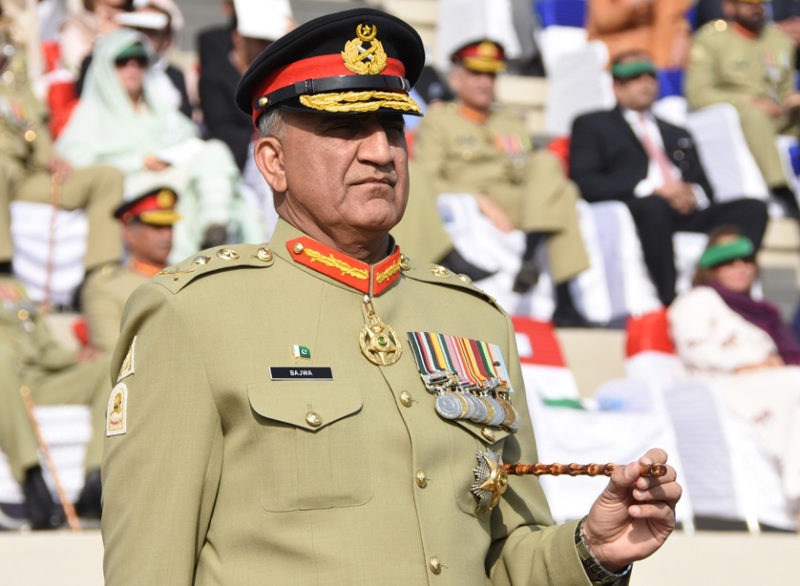Court to decide fate of Pakistan’s top general
General Qamar Javed Bajwa has served three years in his role, arguably the most powerful position in the country, and in August Prime Minister Imran Khan asked him to extend his tenure and serve another three (HO)
Islamabad (AFP) – Pakistan’s Supreme Court will decide Thursday on whether to force the country’s army chief to retire, in an unprecedented challenge to the nuclear-armed nation’s most powerful institution.
General Qamar Javed Bajwa has served three years in his role, arguably the highest authority in the country, and in August Prime Minister Imran Khan asked him to extend his tenure and serve another three.
The request is not unprecedented. The Pakistani military has long played an outsized role in national life, ruling the country for roughly half its 72-year history, and more than one of its army chiefs has gone well beyond their mandated term.
This time, however, the Supreme Court is raising questions about the legality of the decision, in an unexpected move that has shocked the South Asian nation long accustomed to seeing the military get its way.
The court has been holding hearings this week and said Thursday that it would release its decision in the afternoon, ahead of the midnight deadline for Bajwa’s term to expire.
The episode is especially damaging to Khan’s administration, which is seen as close to Bajwa.
“This is a landmark case: unprecedented questions are being raised, threatening to upend the accepted status quo, and holding a mirror to society’s psyche,” Pakistan’s leading English daily Dawn wrote in an editorial.
Bajwa was appointed to lead the military in 2016, taking over from the massively popular General Raheel Sharif, who won the hearts of millions with his blistering fight against Islamist militants.
Since taking power, Bajwa and the military have been criticised for continuing a crackdown on civil society while also being accused of helping engineer Khan’s victory in the 2018 elections.
The government itself is facing growing anger as it struggles to prop up Pakistan’s economy after decades of corruption and mismanagement.
If the army chief is forced to step down, it will raise fresh questions over Khan’s ability to stay in office in a country where not a single prime minister has ever completed their term.
Bajwa is the latest in a long line of Pakistani military generals who have seen their mandates extended.
This time, the tussle has sparked swelling calls from the public on social media for the general to step aside.
It comes as tensions have skyrocketed with New Delhi after Prime Minister Narendra Modi stripped the disputed Kashmir region of its autonomy over the summer, which Khan’s government cited as its primary reason for the extension.
Both India and Pakistan have controlled portions of the former princely state of Kashmir since independence in 1947.
The dispute over the Muslim-majority region has been the spark for two major wars and countless clashes between them.
Disclaimer: Validity of the above story is for 7 Days from original date of publishing. Source: AFP.


